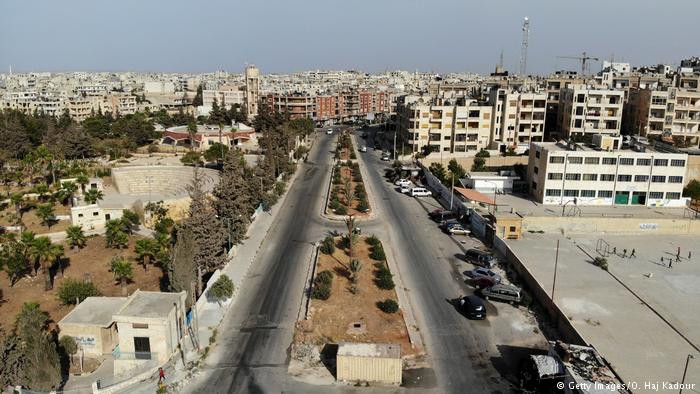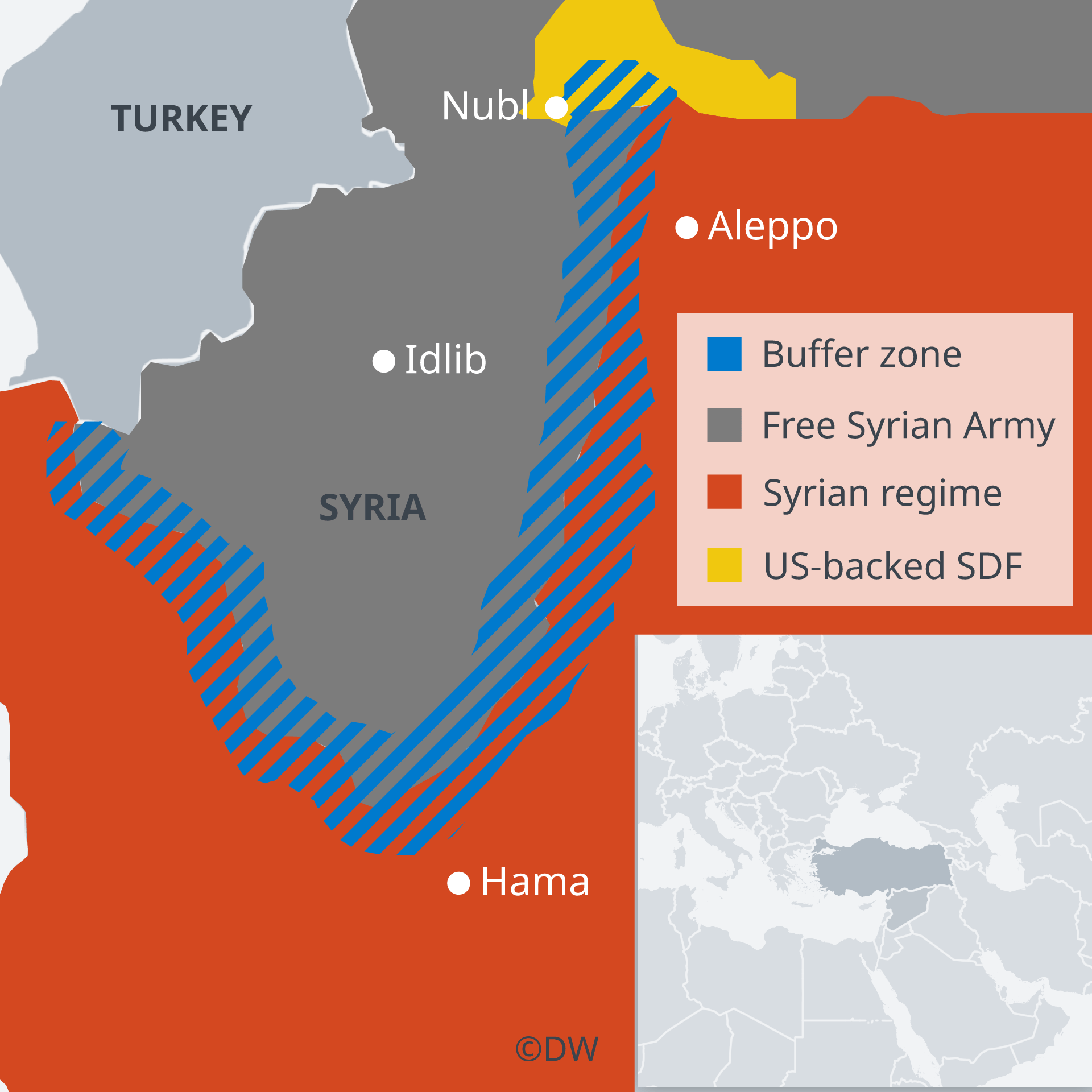
Russia and Turkey’s deal to demilitarize the battle lines around Idlib has been moved on a step. A buffer zone is intended to separate Syrian troops from rebel fighters, and prevent a full-scale assault on the city.

Idlib in northwest Syria is the last rebel stronghold after seven years of war. Turkey’s state-run news agency said on Monday that Grad rocket launchers, mortars and medium-range missiles had been removed from the front line around the city, according to rebel sources.
The UK-based Syrian Observatory for Human Rights also reported that nearly all heavy weapons had been removed from the area on the southern edge of Idlib.
While heavy weapons appear to have been moved, various rebel groups have kept some of their fighters with light and medium weapons in place.
Estimates vary but there may be about 10,000 Jabhat al-Nusra and al-Qaida-linked fighters in the region.
Speaking last week at a forum organized by Turkey’s public broadcaster, TRT, UN Syria envoy Staffan de Mistura said: “If we miss the window of opportunity in Idlib, we will go back to the military solution. It means no rehabilitation, no reconstruction, no return of refugees and a country divided.”
After meeting with the Turkish president last month, Chancellor Angela Merkel said Idlib-related talks “in the month of October” were urgent despite the deal to create a buffer zone.
Turkey and Russia
Turkey had intervened in order to prevent a major Russian-Syrian assault on Idlib, which could have caused many of the 3 million civilians believed to be in the city to flee northwards across the Turkish border.
The UN estimates half of the civilians in Idlib have been displaced from other parts of the country.
In September, Russian President Vladimir Putin and Turkish President Recep Tayyip Erdogan met in the Black Sea resort of Sochi and agreed a 15-20 kilometer (9-12 mile) buffer zone would be set up around Idlib by October 15 and patrolled by troops from both countries.
Turkey registered almost 3.6 million Syrians as refugees between early 2011 and May 2018. But since then, according to Human Rights Watch, “Turkish authorities in Istanbul and nine provinces on or near the Syrian border have stopped registering all but a handful of recently arrived Syrian asylum seekers.”



